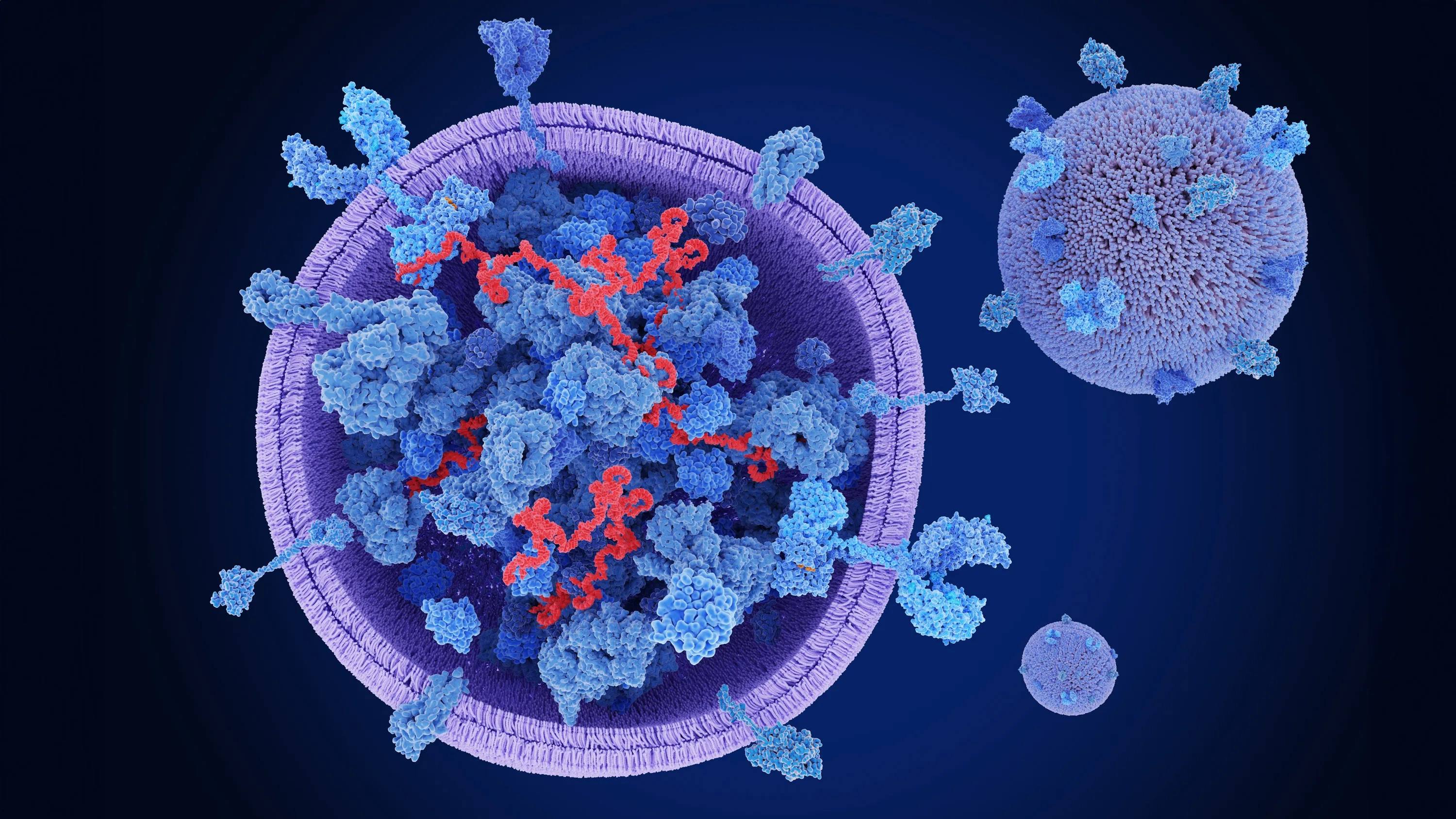Filters
Host (768597)
Bovine (1090)Canine (20)Cat (408)Chicken (1642)Cod (2)Cow (333)Crab (15)Dog (524)Dolphin (2)Duck (13)E Coli (239129)Equine (7)Feline (1864)Ferret (306)Fish (125)Frog (55)Goat (36847)Guinea Pig (752)Hamster (1376)Horse (903)Insect (2053)Mammalian (512)Mice (6)Monkey (601)Mouse (96266)Pig (197)Porcine (70)Rabbit (358709)Rat (11723)Ray (55)Salamander (4)Salmon (15)Shark (3)Sheep (4247)Snake (4)Swine (301)Turkey (57)Whale (3)Yeast (5336)Zebrafish (3022)Isotype (156643)
IgA (13624)IgA1 (941)IgA2 (318)IgD (1949)IgE (5594)IgG (87187)IgG1 (16733)IgG2 (1329)IgG3 (2719)IgG4 (1689)IgM (22029)IgY (2531)Label (239340)
AF488 (2465)AF594 (662)AF647 (2324)ALEXA (11546)ALEXA FLUOR 350 (255)ALEXA FLUOR 405 (260)ALEXA FLUOR 488 (672)ALEXA FLUOR 532 (260)ALEXA FLUOR 555 (274)ALEXA FLUOR 568 (253)ALEXA FLUOR 594 (299)ALEXA FLUOR 633 (262)ALEXA FLUOR 647 (607)ALEXA FLUOR 660 (252)ALEXA FLUOR 680 (422)ALEXA FLUOR 700 (2)ALEXA FLUOR 750 (414)ALEXA FLUOR 790 (215)Alkaline Phosphatase (825)Allophycocyanin (32)ALP (387)AMCA (80)AP (1160)APC (15217)APC C750 (13)Apc Cy7 (1248)ATTO 390 (3)ATTO 488 (6)ATTO 550 (1)ATTO 594 (5)ATTO 647N (4)AVI (53)Beads (225)Beta Gal (2)BgG (1)BIMA (6)Biotin (27817)Biotinylated (1810)Blue (708)BSA (878)BTG (46)C Terminal (688)CF Blue (19)Colloidal (22)Conjugated (29246)Cy (163)Cy3 (390)Cy5 (2041)Cy5 5 (2469)Cy5 PE (1)Cy7 (3638)Dual (170)DY549 (3)DY649 (3)Dye (1)DyLight (1430)DyLight 405 (7)DyLight 488 (216)DyLight 549 (17)DyLight 594 (84)DyLight 649 (3)DyLight 650 (35)DyLight 680 (17)DyLight 800 (21)Fam (5)Fc Tag (8)FITC (30165)Flag (208)Fluorescent (146)GFP (563)GFP Tag (164)Glucose Oxidase (59)Gold (511)Green (580)GST (711)GST Tag (315)HA Tag (430)His (619)His Tag (492)Horseradish (550)HRP (12960)HSA (249)iFluor (16571)Isoform b (31)KLH (88)Luciferase (105)Magnetic (254)MBP (338)MBP Tag (87)Myc Tag (398)OC 515 (1)Orange (78)OVA (104)Pacific Blue (213)Particle (64)PE (33571)PerCP (8438)Peroxidase (1380)POD (11)Poly Hrp (92)Poly Hrp40 (13)Poly Hrp80 (3)Puro (32)Red (2440)RFP Tag (63)Rhodamine (607)RPE (910)S Tag (194)SCF (184)SPRD (351)Streptavidin (55)SureLight (77)T7 Tag (97)Tag (4710)Texas (1249)Texas Red (1231)Triple (10)TRITC (1401)TRX tag (87)Unconjugated (2110)Unlabeled (218)Yellow (84)Pathogen (489613)
Adenovirus (8665)AIV (315)Bordetella (25035)Borrelia (18281)Candida (17817)Chikungunya (638)Chlamydia (17650)CMV (121394)Coronavirus (5948)Coxsackie (854)Dengue (2868)EBV (1510)Echovirus (215)Enterovirus (677)Hantavirus (254)HAV (905)HBV (2095)HHV (873)HIV (7865)hMPV (300)HSV (2356)HTLV (634)Influenza (22132)Isolate (1208)KSHV (396)Lentivirus (3755)Lineage (3025)Lysate (127759)Marek (93)Measles (1163)Parainfluenza (1681)Poliovirus (3030)Poxvirus (74)Rabies (1519)Reovirus (527)Retrovirus (1069)Rhinovirus (507)Rotavirus (5346)RSV (1781)Rubella (1070)SIV (277)Strain (67790)Vaccinia (7233)VZV (666)WNV (363)Species (2982223)
Alligator (10)Bovine (159546)Canine (120648)Cat (13082)Chicken (113771)Cod (1)Cow (2030)Dog (12745)Dolphin (21)Duck (9567)Equine (2004)Feline (996)Ferret (259)Fish (12797)Frog (1)Goat (90451)Guinea Pig (87888)Hamster (36959)Horse (41226)Human (955186)Insect (653)Lemur (119)Lizard (24)Monkey (110914)Mouse (470743)Pig (26204)Porcine (131703)Rabbit (127597)Rat (347841)Ray (442)Salmon (348)Seal (8)Shark (29)Sheep (104984)Snake (12)Swine (511)Toad (4)Turkey (244)Turtle (75)Whale (45)Zebrafish (535)Technique (5597646)
Activation (170393)Activity (10733)Affinity (44631)Agarose (2604)Aggregation (199)Antigen (135358)Apoptosis (27447)Array (2022)Blocking (71767)Blood (8528)Blot (10966)ChiP (815)Chromatin (6286)Colorimetric (9913)Control (80065)Culture (3218)Cytometry (5481)Depletion (54)DNA (172449)Dot (233)EIA (1039)Electron (6275)Electrophoresis (254)Elispot (1294)Enzymes (52671)Exosome (4280)Extract (1090)Fab (2230)FACS (43)FC (80929)Flow (6666)Fluorometric (1407)Formalin (97)Frozen (2671)Functional (708)Gel (2484)HTS (136)IF (12906)IHC (16566)Immunoassay (1589)Immunofluorescence (4119)Immunohistochemistry (72)Immunoprecipitation (68)intracellular (5602)IP (2840)iPSC (259)Isotype (8791)Lateral (1585)Lenti (319416)Light (37250)Microarray (47)MicroRNA (4834)Microscopy (52)miRNA (88044)Monoclonal (516109)Multi (3844)Multiplex (302)Negative (4261)PAGE (2520)Panel (1520)Paraffin (2587)PBS (20270)PCR (9)Peptide (276160)PerCP (13759)Polyclonal (2762994)Positive (6335)Precipitation (61)Premix (130)Primers (3467)Probe (2627)Profile (229)Pure (7808)Purification (15)Purified (78305)Real Time (3042)Resin (2955)Reverse (2435)RIA (460)RNAi (17)Rox (1022)RT PCR (6608)Sample (2667)SDS (1527)Section (2895)Separation (86)Sequencing (122)Shift (22)siRNA (319447)Standard (42468)Sterile (10170)Strip (1863)Taq (2)Tip (1176)Tissue (42812)Tube (3306)Vitro (3577)Vivo (981)WB (2515)Western Blot (10683)Tissue (2015946)
Adenocarcinoma (1075)Adipose (3459)Adrenal (657)Adult (4883)Amniotic (65)Animal (2447)Aorta (436)Appendix (89)Array (2022)Ascites (4377)Bile Duct (20)Bladder (1672)Blood (8528)Bone (27330)Brain (31189)Breast (10917)Calvaria (28)Carcinoma (13493)cDNA (58547)Cell (413805)Cellular (9357)Cerebellum (700)Cervix (232)Child (1)Choroid (19)Colon (3911)Connective (3601)Contaminant (3)Control (80065)Cord (661)Corpus (148)Cortex (698)Dendritic (1849)Diseased (265)Donor (1360)Duct (861)Duodenum (643)Embryo (425)Embryonic (4583)Endometrium (463)Endothelium (1424)Epidermis (166)Epithelium (4221)Esophagus (716)Exosome (4280)Eye (2033)Female (475)Frozen (2671)Gallbladder (155)Genital (5)Gland (3436)Granulocyte (8981)Heart (6850)Hela (413)Hippocampus (325)Histiocytic (74)Ileum (201)Insect (4880)Intestine (1944)Isolate (1208)Jejunum (175)Kidney (8075)Langerhans (283)Leukemia (21541)Liver (17340)Lobe (835)Lung (6064)Lymph (1208)Lymphatic (639)lymphocyte (22572)Lymphoma (12782)Lysate (127759)Lysosome (2813)Macrophage (31794)Male (1617)Malignant (1465)Mammary (1985)Mantle (1042)Marrow (2210)Mastocytoma (3)Matched (11710)Medulla (156)Melanoma (15522)Membrane (105772)Metastatic (3574)Mitochondrial (160319)Muscle (37419)Myeloma (748)Myocardium (11)Nerve (6398)Neuronal (17028)Node (1206)Normal (9486)Omentum (10)Ovarian (2509)Ovary (1172)Pair (47185)Pancreas (2843)Panel (1520)Penis (64)Peripheral (1912)Pharynx (122)Pituitary (5411)Placenta (4038)Prostate (9423)Proximal (318)Rectum (316)Region (202210)Retina (956)Salivary (3119)Sarcoma (6946)Section (2895)Serum (24880)Set (167654)Skeletal (13628)Skin (1879)Smooth (7577)Spinal (424)Spleen (2292)Stem (8892)Stomach (925)Stroma (49)Subcutaneous (47)Testis (15393)Thalamus (127)Thoracic (60)Throat (40)Thymus (2986)Thyroid (14121)Tongue (140)Total (10135)Trachea (227)Transformed (175)Tubule (48)Tumor (76921)Umbilical (208)Ureter (73)Urinary (2466)Uterine (303)Uterus (414)Exploring the Role of Exosomes in Disease Diagnosis and Therapy : A New Frontier in Precision Medicine
Exosomes are tiny extracellular vesicles that have recently gained considerable attention in the field of precision medicine. These small particles are secreted by cells into biological fluids like blood, urine, and saliva and are known to carry proteins, lipids, RNA, and other molecules that reflect the state of their parent cells. Exosomes play an essential role in intercellular communication, making them invaluable for disease diagnosis and therapeutic applications.
In this article, we will explore the exciting potential of exosomes in disease detection, their therapeutic capabilities, and their growing role in precision medicine.
Genprice
Scientific Publications

Exploring the Role of Exosomes in Disease Diagnosis and Therapy : A New Frontier in Precision Medicine
What Are Exosomes and Why Are They Important ?
Exosomes are nanometer-sized vesicles (30-150 nm) that are naturally secreted by cells and are involved in cell-to-cell communication. They contain a range of biomolecules, including mRNA, miRNA, proteins, and lipids, and are being increasingly recognized for their potential as biomarkers for diagnosis and as therapeutic agents.
Their ability to carry information from one cell to another makes them ideal for studying cellular processes and understanding the mechanisms of disease. Moreover, exosomes can be found in blood, urine, saliva, and other body fluids, allowing for non-invasive monitoring of diseases.

Exosomes in Disease Diagnosis
Exosomes are transforming the field of diagnostics due to their ability to carry genetic material and proteins from diseased cells. Because exosome levels and content change in response to disease, they offer a promising avenue for early detection and monitoring of various diseases. Some of the key ways exosomes are being utilized in diagnostics include :
-Cancer : Exosomes are used in liquid biopsies to detect tumor markers and monitor tumor progression. Exosomal biomarkers can help in early cancer detection, determining tumor type, and assessing treatment efficacy.

-Neurological Disorders : Exosomes are being explored as a method for early diagnosis of neurodegenerative diseases like Alzheimer’s and Parkinson’s disease. Their ability to carry neurodegeneration-related proteins and miRNAs makes them a potential diagnostic tool for these conditions.

- Cardiovascular Diseases : Exosomes are increasingly being used to monitor heart health and detect early signs of conditions such as myocardial infarction and heart failure.

-Autoimmune Diseases : Exosome biomarkers can provide valuable insights into the presence and progression of diseases like lupus and rheumatoid arthritis.

Exosomes in Therapy and Regenerative Medicine
In addition to diagnostics, exosomes are making waves in therapy and regenerative medicine due to their potential to promote tissue repair and cellular regeneration. Some of the key therapeutic applications of exosomes include :
-Wound Healing : Exosomes derived from stem cells have been shown to promote wound healing and tissue regeneration, making them a promising tool for regenerative medicine.

-Neuroprotection : Exosomes have the potential to carry therapeutic molecules into the brain, making them a promising drug delivery system for neurodegenerative diseases like Alzheimer’s and Parkinson’s.

-Immune Modulation : Exosomes are involved in immune response regulation and are being studied for their role in immune modulation, which could be harnessed for autoimmune disorders or cancer immunotherapy.

How Exosome-Based Therapeutics Are Advancing ?
Exosome-based therapies are still in the research phase, but significant progress has been made in their ability to deliver therapeutic agents to target tissues. Researchers are currently investigating how exosomes can be engineered to carry therapeutic proteins, siRNA, or even DNA to specific organs or areas of the body, making them an efficient and targeted delivery system for gene therapy and regenerative medicine.
The ability to use exosomes as drug delivery vehicles is especially important for treating diseases like cancer and neurodegenerative disorders, where precise and targeted delivery is crucial for effectiveness and minimizing side effects.
Exosome Isolation and Characterization
The ability to isolate and characterize exosomes is critical for their use in diagnostics and therapeutics. Techniques like ultracentrifugation, immunocapture, and microfluidics are commonly used to isolate exosomes from biological fluids. Additionally, flow cytometry, nanoparticle tracking analysis (NTA), and electron microscopy are utilized to characterize the size, number, and surface markers of exosomes, ensuring they are suitable for downstream applications.
Exosome Research and Genprice’s Contribution
At Genprice, we provide advanced tools and reagents for exosome research, from exosome isolation kits to biomarker assays and custom solutions for studying exosome biology. Our products enable scientists to explore the vast potential of exosomes in diagnostics, therapeutics, and regenerative medicine.
By offering high-quality exosome isolation kits and bioanalytical tools, Genprice plays a pivotal role in supporting scientific discovery in the exciting field of exosome research.
